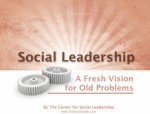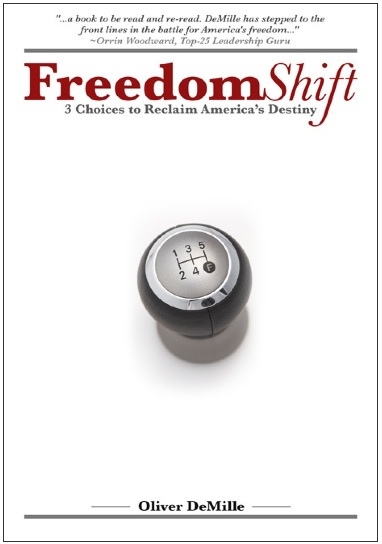The True Fiscal Cliff by Oliver DeMille
Published: Fri, 12/21/12
 "Empowering Ordinary Citizens to Make an Extraordinary Difference"
|
|
The True Fiscal Cliff
 The debate about "the fiscal cliff" shows us what's ahead in American politics.
One side believes that the solution to our major national financial problems is to raise taxes on the rich.
The other believes that our fundamental problem is too much spending, and that only cuts in spending can really fix our increasing economic challenges.
There are really five fiscal cliffs. One is that without an agreement between Democrats and Republicans, taxes will go up for many Americans on January 1.
The second is that there are a number of automatic federal spending cuts that go into effect on January 1 unless the two parties reach a deal.
Regardless of what is said publicly, Democrats aren't particularly saddened by raised taxes, and Republicans like the idea of automatic spending cuts. A third cliff is that the stock markets may react negatively to whatever happens. In fact, they may have a negative response to the politics of the situation even if a deal does get done.
The same applies to the fourth cliff, the impact on the credit rating of the United States--which has a direct impact on the finances of everyone.
Fifth, many nations in the world are wondering about the wisdom of keeping the U.S. Dollar as the world's reserve currency, and this kind of financial battling in Washington increases the energy behind this question. When Britain lost its role as provider of the world's reserve currency in the 1970s, the net worth of most British citizens decreased between 20 and 30 percent overnight.
Clearly this is a major concern--it may be the biggest financial cliff ahead. In all the drama, conflict and partisan bickering, the American people are increasingly frustrated with the inability of Washington to get things done. The two-party system just doesn't seem to be serving us anymore.
The American Founding Fathers set up the U.S. Constitution without a party system, and they were concerned that political parties cause many of the problems in politics.  In Federalist Paper 10, James Madison argued that parties cause "instability, injustice and confusion", and he called political parties "the mortal diseases under which popular governments have everywhere perished".
These are very strong words.
He further lamented that "the public good is disregarded in the conflicts of rival parties." This commentary in Federalist 10 is famous among people who study politics, but what is sometimes missed is what Madison says next.
Immediately after outlining the problems with political parties, he argued that to overcome this problem we must understand one key principle, that "the first object of government", as he put it, is to protect the rights of property. The protection of property rights is why government is established in the first place. This gives the citizens a way to judge the actions of government and political parties: To what extent do the proposals protect the property rights of the people? This is a simple and very effective way to analyze government debates, and Madison's words from over two centuries ago are specifically applicable today. Increased taxes and government spending deal directly with the property rights of the citizenry. The question every citizen needs to ask is this: What is our problem--do we have a spending problem, or a low tax problem? If taxes are simply too low for the wealthy, the Democrats are right.  If Washington is just spending too much money on too many things,the Republicans are right. The biggest problem is that both parties want to increase federal spending, albeit for different things. The Democratic agenda is to spend more on domestic programs, while Republicans are more likely to support increased spending on international projects.
Regardless of what happens with the fiscal cliff, our national addiction to spending is the real long-term challenge.
In the election of 2012, Americans voted for split government--Democrats in the White House and Senate, Republicans in the House. This is a symptom of the people not really trusting either party.
But as much as some media and Washington insiders blame our economic problems on party divisions, there is a bigger, deeper challenge.
We are a nation addicted to government spending, and until this changes, more fiscal cliffs are coming. *******************  Oliver DeMille a founder of the Center for Social Leadership, and co-creator of TJEd. Oliver DeMille a founder of the Center for Social Leadership, and co-creator of TJEd.He is the author of A Thomas Jefferson Education: Teaching a Generation of Leaders for the 21st Century, The Coming Aristocracy: Education & the Future of Freedom, and FreedomShift: 3 Choices to Reclaim America's Destiny.
Oliver is dedicated to promoting freedom through leadership education. He and his wife Rachel are raising their eight children in Cedar City, Utah.
Connect With Oliver: |
Connect & Engage
Recent Blog Articles
By Stephen Palmer
By Oliver DeMille
By Bryan Hyde
By Oliver DeMille By Chris Brady
By Stephen Palmer Free PDF Downloads
|
www.TheSocialLeader.com |



